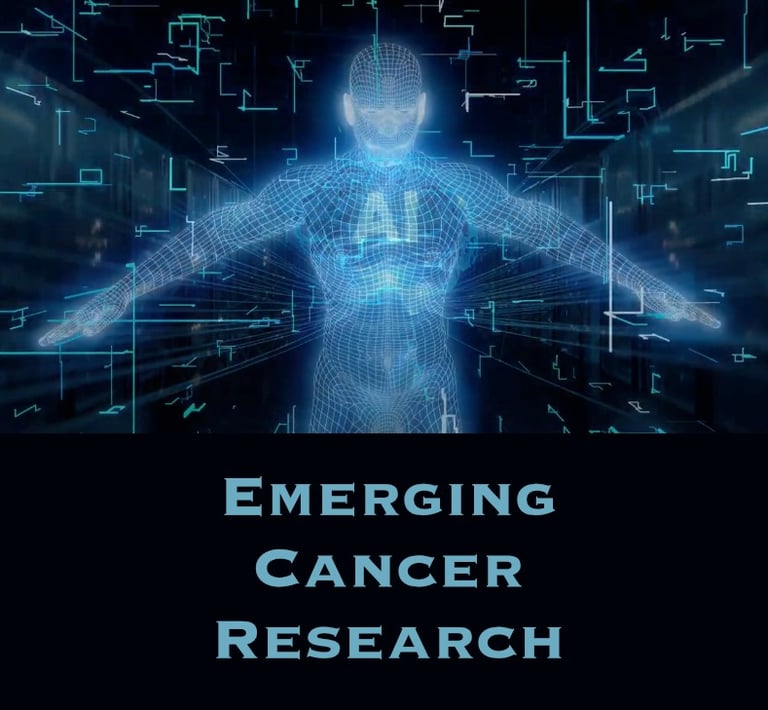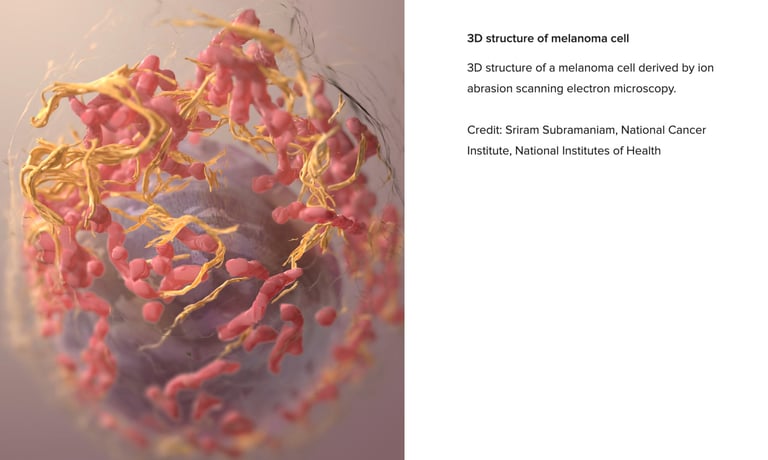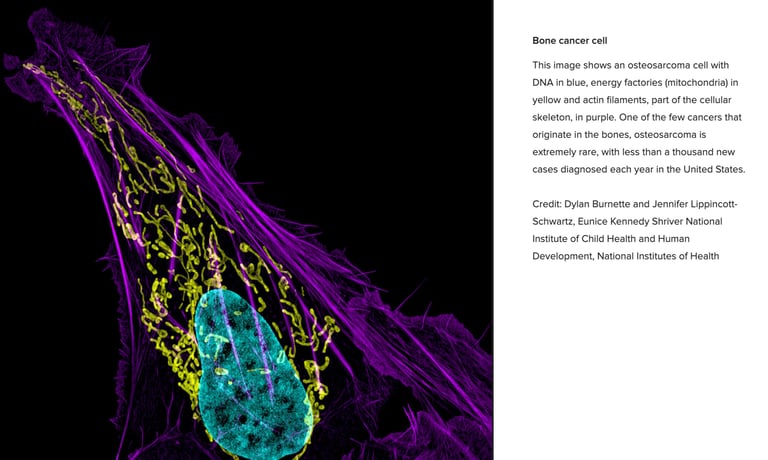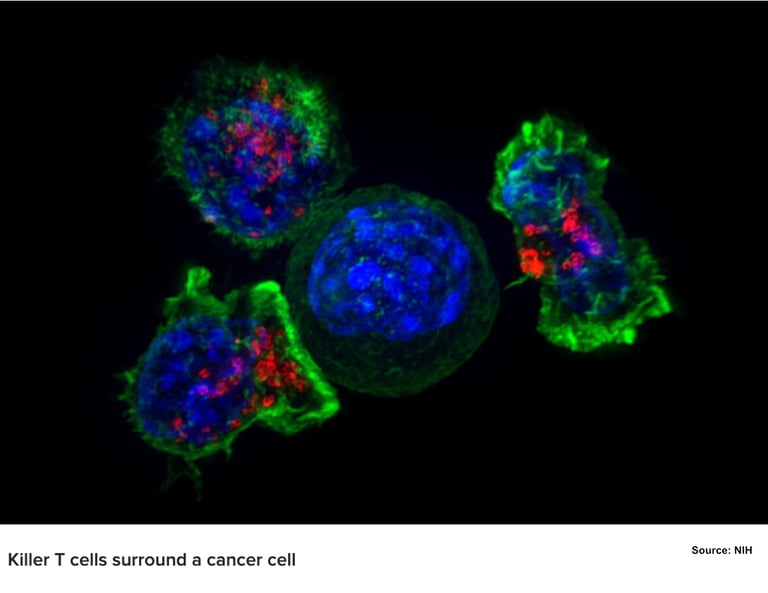Once a week, I publish a Substack (online journal) where I discuss developments in medical science, survivor psychology, and anything else that may have a bearing on surviving life-threatening diseases.
It's free.
The Emerging Cures Blog on Substack
Ultrasound has long been used to help doctors see inside the body, but high-frequency sound waves are now being turned into weapons against cancer itself. A new generation of scientists is using sound to destroy tumors, open the blood–brain barrier, and even awaken the immune system—all without a single incision.
Cancers are difficult to treat because tumors have built-in characteristics that confuse our immune systems. Tumors cloak themselves in a biochemical fog that confuses the immune system, turning immune cells from protectors into bystanders. Now, researchers are discovering that messenger RNA—the same genetic courier used in COVID-19 vaccines—can pierce that fog and reawaken the immune system’s natural vigilance. Across multiple continents, new mRNA cancer vaccines are beginning to show what many once thought impossible: training the body itself to recognize and destroy cancer.
Two Emerging Cancer Therapies With Major Potential: Ultrasound (instead of surgery) and mRNA Vaccines


Scans or tissue samples or early-stage cancers look normal at first glance. A single misjudgment can mean a life lost.
Artificial intelligence is beginning to change that. This week’s article explores some examples.These advances, however, are not yet widely available. The software itself is relatively inexpensive and works with existing imaging systems, but adoption is slowed by other factors: hospitals must adopt it despite the financial incentives of the current processes (advanced cancers are major revenue generators), physicians are reluctant to switch to technology that does what they do better and at a significantly lower cost, and reimbursement systems lag behind innovation.
In Cancer Medicine, The Borderline Cases Are The Most Difficult To Diagnose

AI is transforming medicine. Nowhere is this more apparent than in radiology where AI can do what physicians do faster, cheaper and better. Next will be pathology, for the same reasons. We still need radiologists and pathologists, but in much fewer numbers. The transition is slowed by hospitals and physicians resisting the change because it is threatening the economic model, but it must happen because the new technologies are life-saving.
AI Outperforms Human Radiologists and Pathologists

Artificial intelligence (AI) is transforming cancer treatment and diagnosis. This article highlights how physician-scientists are pioneering AI tools like LORIS and CHIEF to revolutionize areas such as predicting immunotherapy response and performing complex diagnostic evaluations with unprecedented accuracy. The text emphasizes that AI is driving a precision medicine revolution by enabling the custom design of drugs, like novel binders for previously "undruggable" proteins, and improving patient outcomes through enhanced diagnostics and surgical procedures. Furthermore, the source discusses how AI is increasingly being used for prognostication, predicting diseases years in advance and forecasting patient survival with high confidence, illustrating the profound shift in medical paradigms.
Stories From the New Frontier in Cancer Research
“MIT’s Regina Barzilay has built technology that can predict cancer years before it appears. Validated across millions of scans, it could transform medicine — yet hospitals and insurers still won’t let patients benefit. Radiologists haven’t exactly embraced it either.”
The Cancer Diagnosis Revolution Hospitals Won’t Use
This Substack is a chronicle of my effort to survive Stage 4a non-Hodgkin's lymphoma, a process that spanned over a decade and involved numerous experimental treatments, oncologists, and alternative therapies. It is about my personal experience with WF-10, an experimental drug initially developed for radiation exposure, which provided a crucial reprieve, and later with Rituxan, a monoclonal antibody that ultimately led to remission.
My History With Terminal Cancer
This week’s Emerging Cures Substack explores Chimeric Antigen Receptor (CAR) therapies, specifically CAR-T and CAR-NK treatments, which harness the body's immune system to combat cancer. These innovative approaches involve genetically engineering immune cells to recognize and destroy cancer cells, offering a new frontier in personalized medicine beyond traditional methods like chemotherapy.
CAR-T therapies have shown significant success in blood cancers. CAR-NK therapies are emerging as a promising alternative with lower toxicity and the potential for "off-the-shelf" availability, addressing key logistical and cost challenges.
AI is a crucial element in the design and implementation of these therapies.
The post closes with another novel cancer treatment, bacteria-based approaches
Treatments for cancer are rapidly evolving.
Significant Positive Results Are Being Achieved in CAR-T and CAR-NK Cancer Treatments

This week’s Emerging Cures Substack explores one of the most challenging areas of AI-driven cancer treatment – creating individualized patient therapies. It is also one of the most effective and promising. Although available in very few cancer treatment hospitals and treatment centers currently, it is the future of cancer medicine.
AI Is Now Designing Treatments For Each Cancer Patient As Unique As That Patient's Fingerprint
The Increasing Role of AI in Medical Research for Deadly Diseases
The new drugs, surgical procedures and diagnostic processes are vastly superior to those they are replacing.


The State of the Art in Cancer Research (As of July 2025)
Cancer treatment is undergoing a huge transformation toward highly personalized, adaptive approaches. These are enhanced by continuous adjustment based on real-time data from liquid biopsies analyzed by artificial intelligence. This is nothing short of a revolution in treatment, though currently offered by very few cancer treatment and research centers.


The Survivor Mindset
Your mental attitude must be protected and preserved. Eyes on the prize: survival.


Be in touch if you've received a serious diagnosis and would like to talk.
(802) 234-3120 (Office)
(843) 802-0183 (Mobile)
55 Westover Drive, #A
Asheville, NC 28801
(Office complex between the fire station and Stellini's Restaurant)
